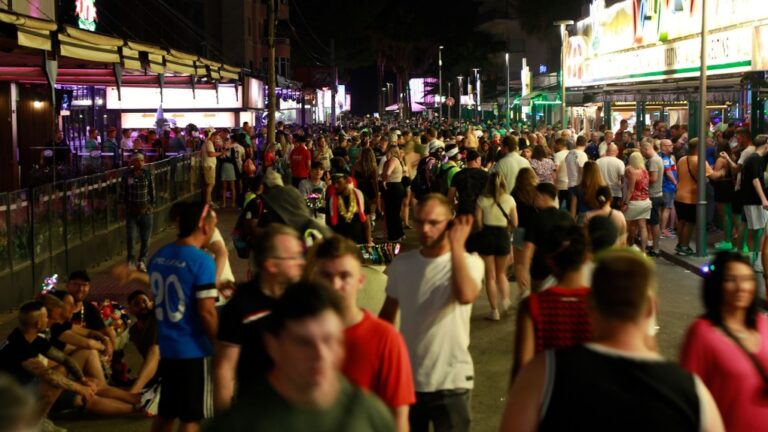Spain’s Balearic Islands are further cracking down on public drinking and party boats as part of 2020 legislative changes to tackle “over-tourism”.
The new rules will ban drinking on the street in Ibiza and Mallorca’s main tourist areas, except on terraces and other licensed areas. Fines for violations range from 500 to 1,500 euros (540 to 1,615 USD).
Party boats that sell alcohol on board will also be prohibited from entering within one nautical mile of the waters covered by the ordinance. Passengers will also be prohibited from boarding and alighting in the affected areas.
The new measures aim to further curb destructive behavior, but the government has softened the wording around the original 2020 legislation against “overtourism” in favor of a revised terminology of “responsible tourism”. did. The update acknowledges that the original language was contrary to the island’s main industry, noting that “tourism accounts for more than 45 percent of the community’s GDP.”
These islands have long been nightlife hubs for young travelers and international celebrities.
The 22-article law, originally introduced in 2020, was sparked by media reports about “uncivil behavior in certain tourist destinations” in Mallorca and Ibiza, with alcohol consumption being the main cause. There is. The act created a nightlife scene that tarnished the image of the destination and reduced the area for residents.
The decree points out that serious injuries and deaths occur, stating that “news stories about uncivil acts by young tourists are reported every year, causing deep concern for the rest of the public, the hotel industry, and the relevant administrations. ” he said.
The Decree outlined tourist accommodation, the sale and advertising of alcoholic beverages, sanctions, and other measures to curb dangerous or destructive behavior.
The newly amended Responsible Tourism Ordinance will allocate €16 million (approximately US$17.2 million) from the Sustainable Tourism Tax to help affected regions finance projects that promote responsible tourism.
In April, locals in Spain’s Canary Islands said the surge in tourism from 11.5 million to 16 million a year over the past decade has forced paying tourists to leave their homes and caused environmental damage. They rallied to protest against excessive tourism.

